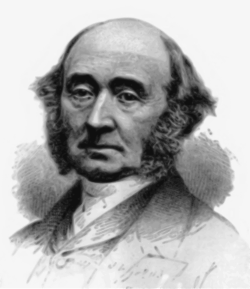
John McLeod Campbell (4 May 1800 – 27 February 1872) was a Scottish minister and Reformed theologian. In the opinion of one German church historian, contemporaneous with Campbell, his theology was a highpoint of British theology during the nineteenth century.[1] James B. Torrance ranked him highly on the doctrine of the atonement, placing Campbell alongside Athanasius of Alexandria and Anselm of Canterbury.[2] Campbell took his cue from his close reading of the early Church Fathers, the historic Reformed confessions and catechisms, John Calvin, Martin Luther's commentary on Galatians, and Jonathan Edwards' works.[3]
- ^ Otto Pleiderer, The Development of Theology in Germany since Kant and its Progress in Great Britain since 1825, Macmillan and Co., New York, New York, 1890, p. 382. "I regard their (Thomas Erskine of Linlathen's and John Mcleod Campbell's) ideas as the best contribution to dogmatics which British theology has produced in the present century."
- ^ James B. Torrance, Scottish Journal of Theology, #26, 1973, p. 295.
- ^ On this the reading of The Whole Proceedings..., shows how widely read Campbell really was, particularly with regard to Reformed theology outside of the Westminster Standards. That he continued reading widely may be seen in his dialogue in On the Nature of the Atonement with past theologians like Martin Luther, John Owen, Jonathan Edwards, and contemporary theologians like Pye Smith, George Payne, Thomas Jenkyns, Thomas Chalmers, and others.